IDOMENABLE
After nearly a week of striking musicians and cancelled performances, Lyric Opera is now back on schedule and giving audiences what they want. With Mozart’s Idomeneo, audiences are more likely getting what they didn’t know they wanted because they’ve never experienced this opera before. Last performed at Lyric during the 1997-98 season, Idomeneo is considered Mozart’s first mature opera, completed when the composer was still a youthful 25 years old.
Unlike Mozart’s more popular works (The Marriage of Figaro and The Magic Flute), Idomeneo lacks comedy of any kind. Yet it also lacks tragedy, since with one notable exception, the ending is a happy and harmonious one. The music ranges from the glorious to the intimate, occasionally tending to be long-winded, especially in the lengthier first and third acts.
Sir Andrew Davis conducts a largely homegrown cast led by Evanston-native Matthew Polenzani in the title role. Although there are numerous role debuts and even two Lyric debuts, there is little new about this production, which was designed and directed by the late Jean-Pierre Ponnelle and first premiered at the Metropolitan Opera in 1982.
Ponnelle’s monumental and evocative set has aged remarkably well, but his costumes are looking rather stodgy and recycle bin-ready. Elettra’s outrageously wide hoop skirt, for example, looks clownish when paired with a bright red wig. And the dark silks seem incongruous beside the soft stone pillars of the set’s Cretan backdrop. Only Ilia’s simple white gown works tolerably well.
The director’s staging, however, is unusually noteworthy. He obviously favors symmetrical placing of actors and chorus, such that during the quartet aria “Andrò, ramingo e solo” each singer is equidistant from the next in a straight line. Visually, everything appears neatly and tidily, if a tad too statically. A more dramatic and 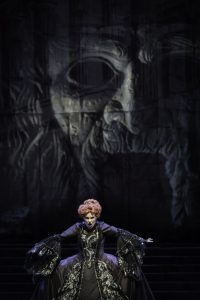 disconcerting strategy is Ponnelle’s placing of other actors on stage when they are being sung about, even when they do not contribute to the action — a kind of shadowing. Moreover, Chris Maravich’s lighting design does something similar with the massive head of Neptune, which is illuminated or not as appropriate to the story.
disconcerting strategy is Ponnelle’s placing of other actors on stage when they are being sung about, even when they do not contribute to the action — a kind of shadowing. Moreover, Chris Maravich’s lighting design does something similar with the massive head of Neptune, which is illuminated or not as appropriate to the story.
Idomeneo begins with Ilia, daughter of the recently defeated King Priam of Troy, captive on Troy. She is joined by Elettra, whose mother Clytemnestra has killed her father Agamemnon. Traumatized and homesick, they seek solace in the love of Idamante, son of King Idomeneo of Crete. When the latter returns home and barely survives a shipwreck, he vows to sacrifice the first person he sees to Neptune, much like the biblical prophet Jephthah sacrificed his own daughter. Since it is Idamante that greets him, Idomeneo initially tries to avoid fulfilling his vow by sending his son away. When Neptune whips up a storm, Idomeneo is forced to admit his mistake. In the end, Elettra dies in a rage, Idomeneo abdicates the throne, and Idamante marries Ilia.
Matthew Polenzani’s performances keep getting better and better; as the titular King of Crete he acts with characteristic gravitas and nobility, which is likewise evident in his voice’s persuasive power, sonorous tone and fluid phrasing. If you’re like this reviewer and saw only the first half of Turandot’s run last season, then you missed soprano Janai Brugger. (Of course, that means you saw Maria Agresta instead, who was also wonderful and is currently playing Mimi in La Bohème.) Now you can see Brugger in the more prominent role of Ilia, which she plays with such depth of emotion and feeling in every cadence that audiences are quickly won over by her and never consider Elettra’s rival claim to Idamante’s heart. Although never dull, Brugger is most captivating in her intimate solo arias, such as those that open Acts I and III.
Making their role debuts as Elettra and Idamante, soprano Erin Wall and mezzo-soprano Angela Brower (also making her Lyric debut) both play their parts competently, but not entirely compellingly, starting out somewhat stiffly and growing more comfortable by performance’s end. Wall’s bravura meltdown and masterful coloratura in her Act III rage aria “D’Oreste, d’Ajace,” however, is one of the production’s highlights. Other notable Lyric debuts include Ryan Opera Center members Kayleigh Decker as Second Cretan Woman and David Weigel as the Voice of Neptune, as well as Noah Baetge as the High Priest. I hope to see and hear each again soon.
Mozart tinkered with Idomeneo more than once during his short life, rewriting parts and cutting arias, and it shows in the unevenness of the version presented here at Lyric. The dated production design and numerous role debuts contribute to the inconsistency. Nevertheless, between Brugger’s eminently lovable Ilia, Mozart’s stunning music, and the libretto’s classical theme, Idomeneo is not to be missed.
Idomeneo
Lyric Opera of Chicago
Civic Opera House, 20 N. Wacker Drive
ends on November 2, 2018
for tickets, call 312.827.5600 or visit Lyric Opera
for more shows, visit Theatre in Chicago
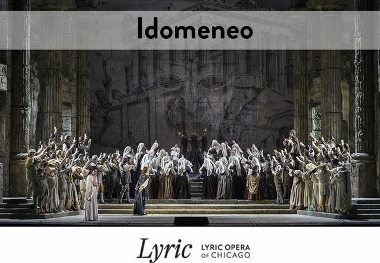
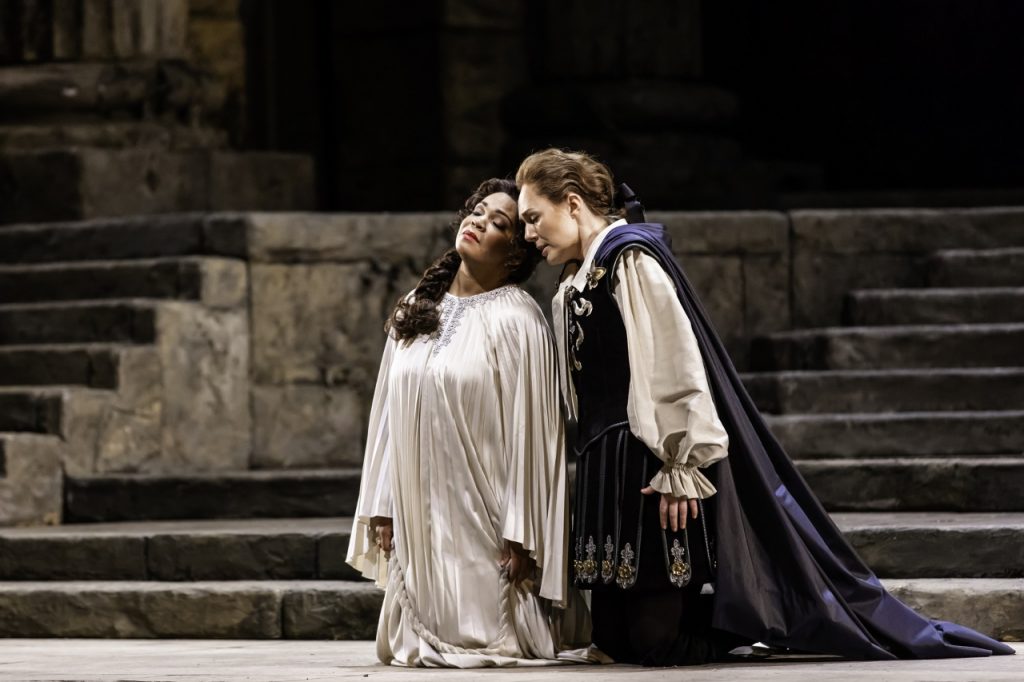
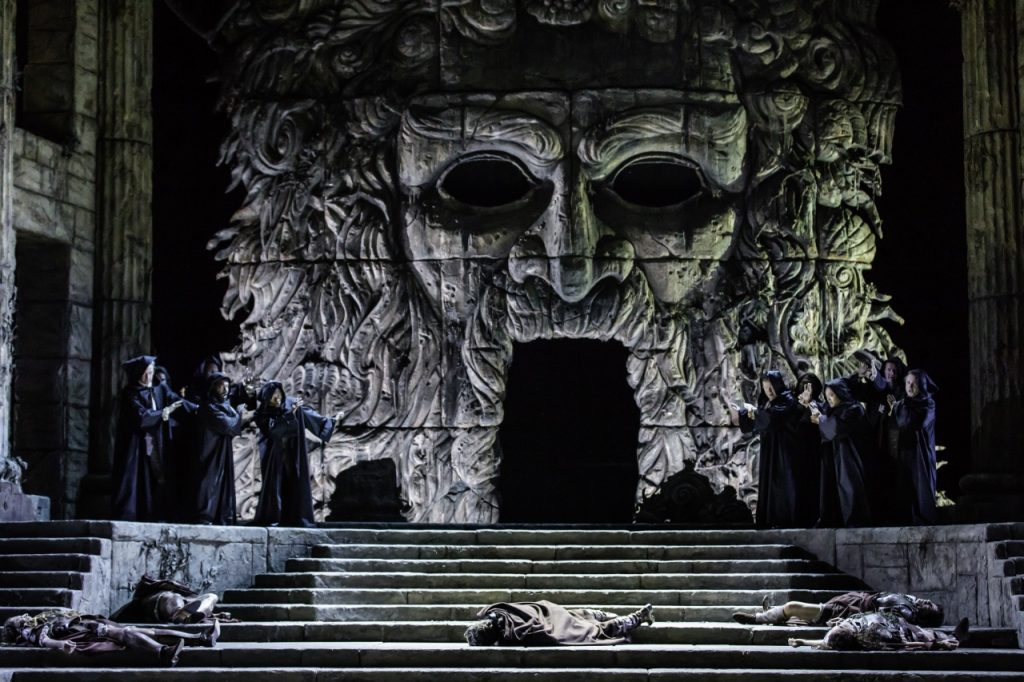
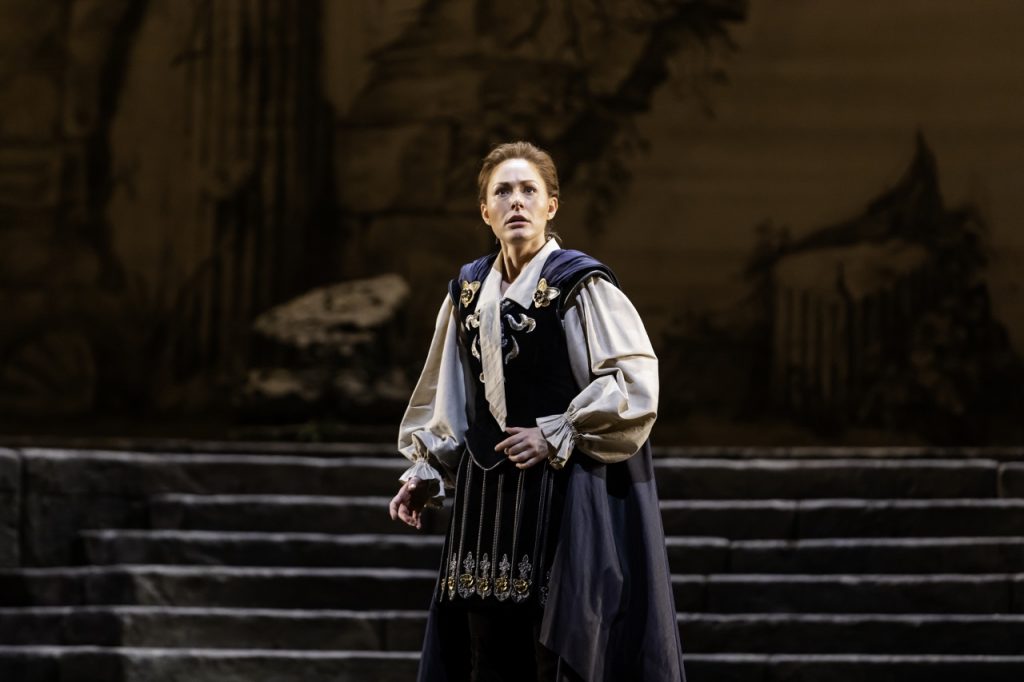
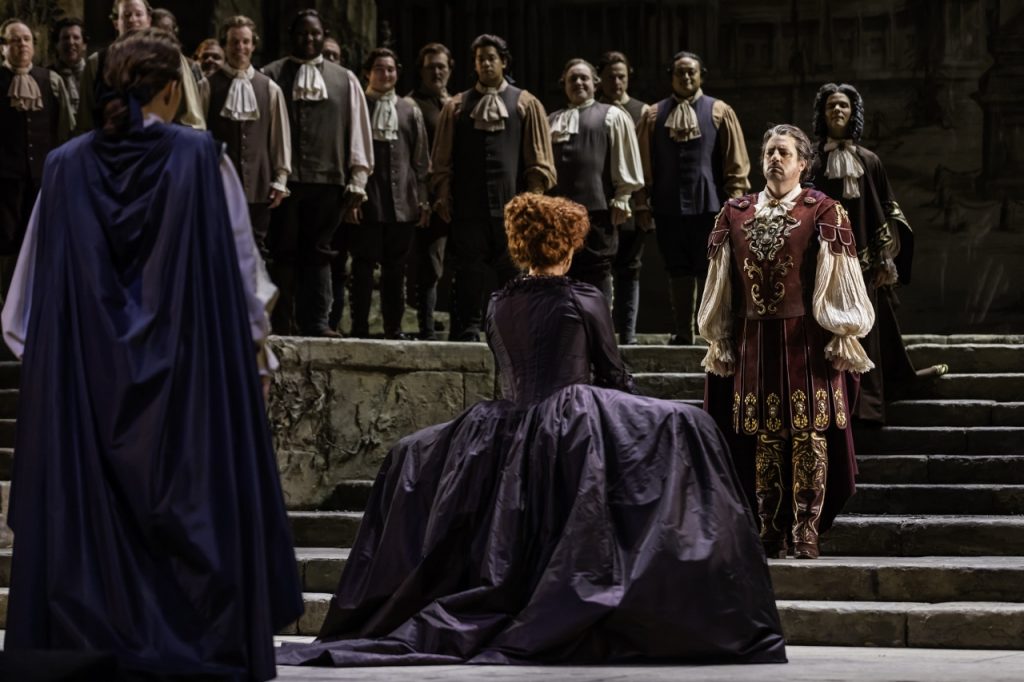
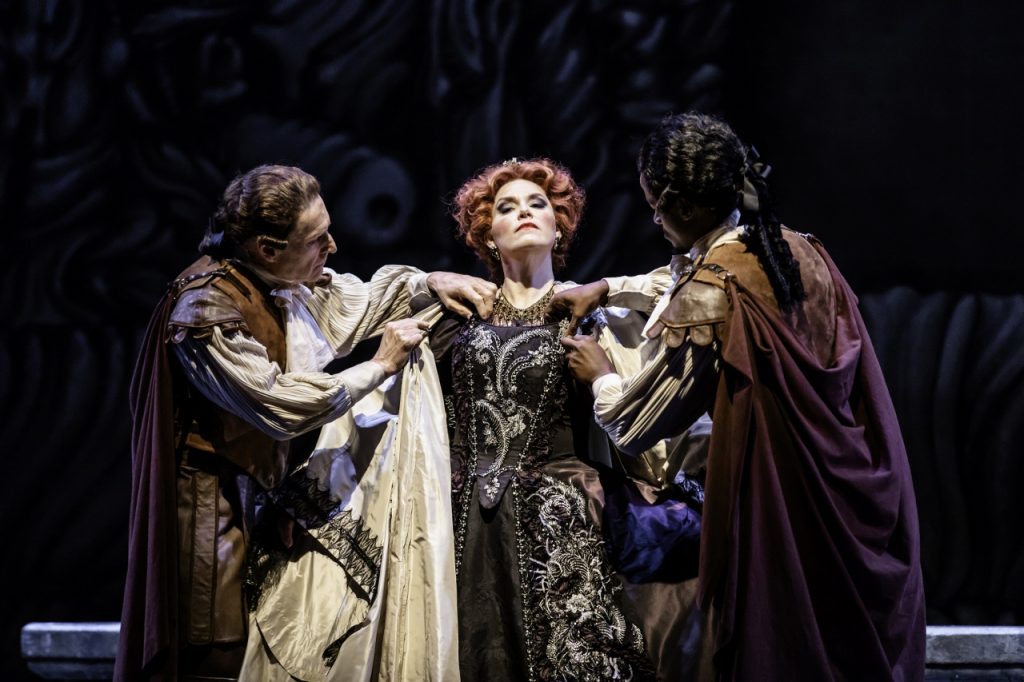
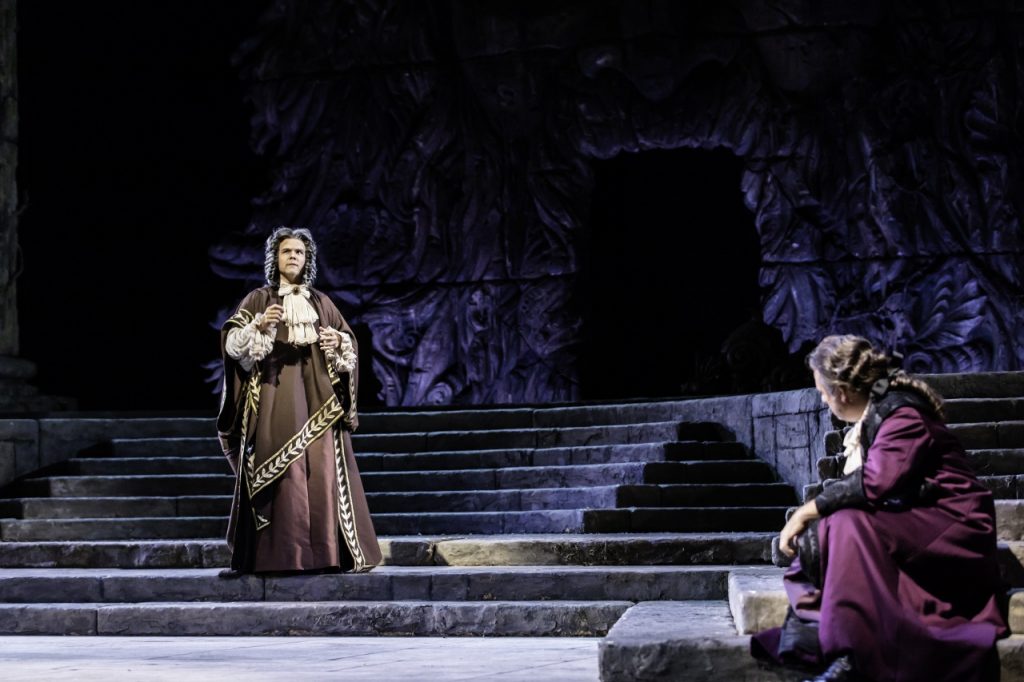
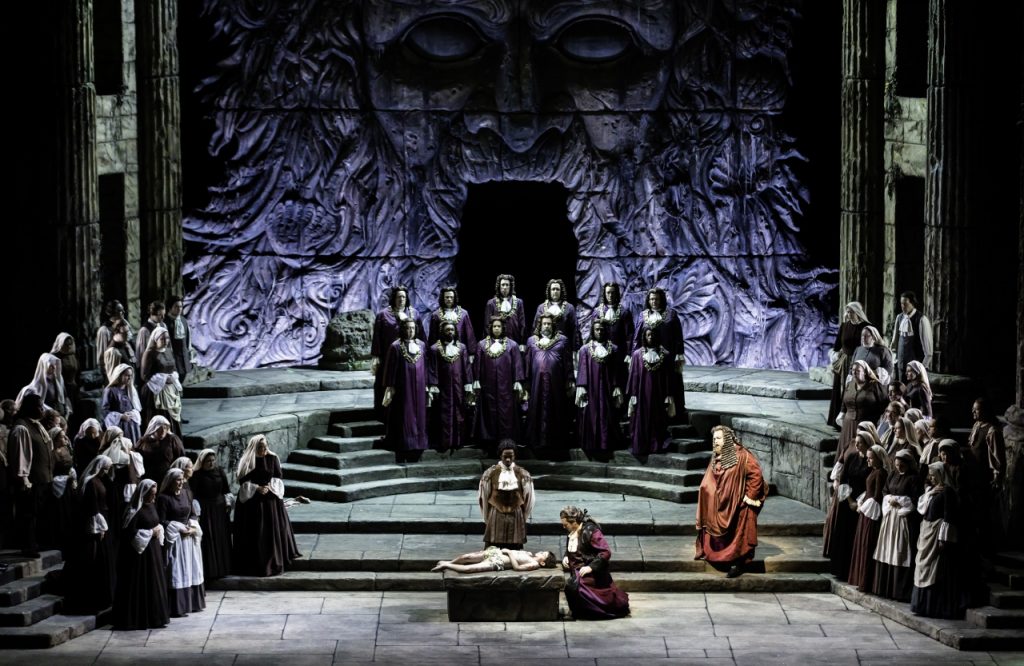
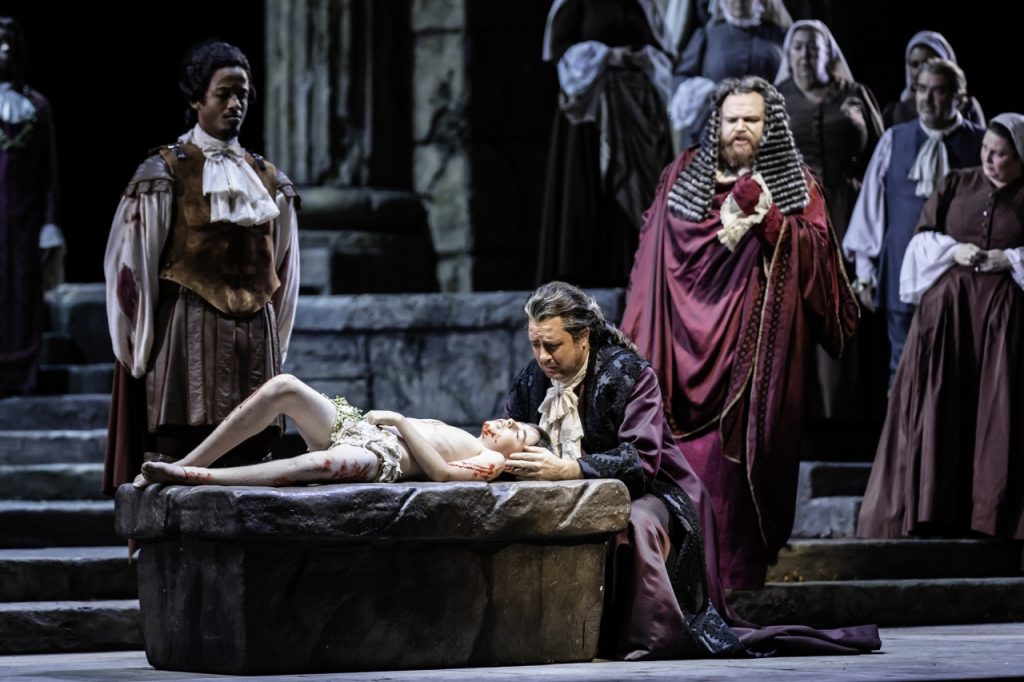
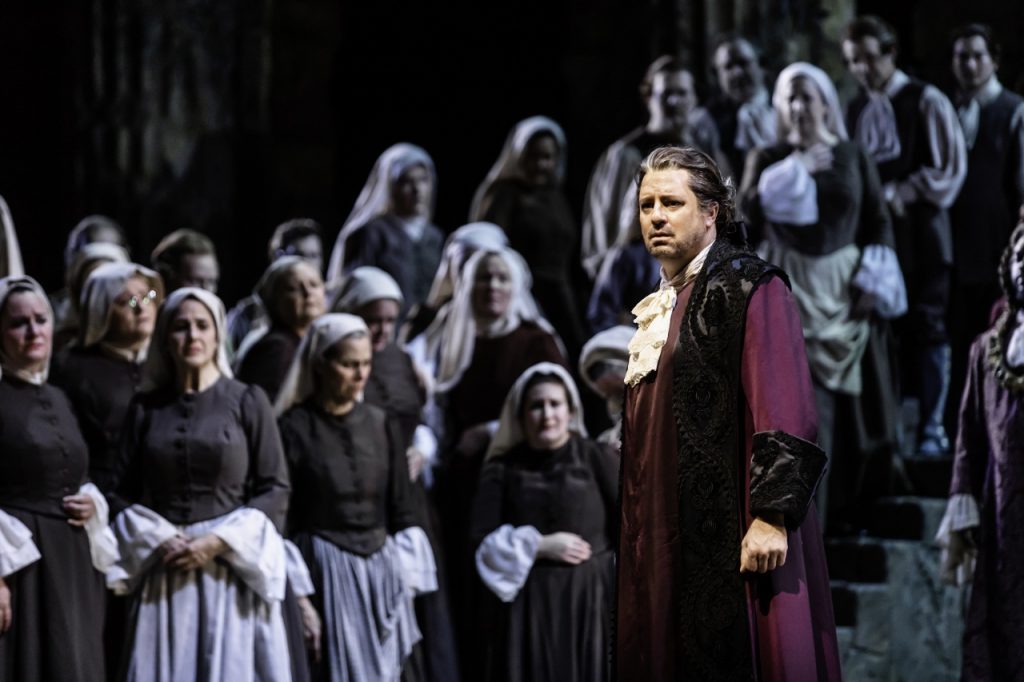
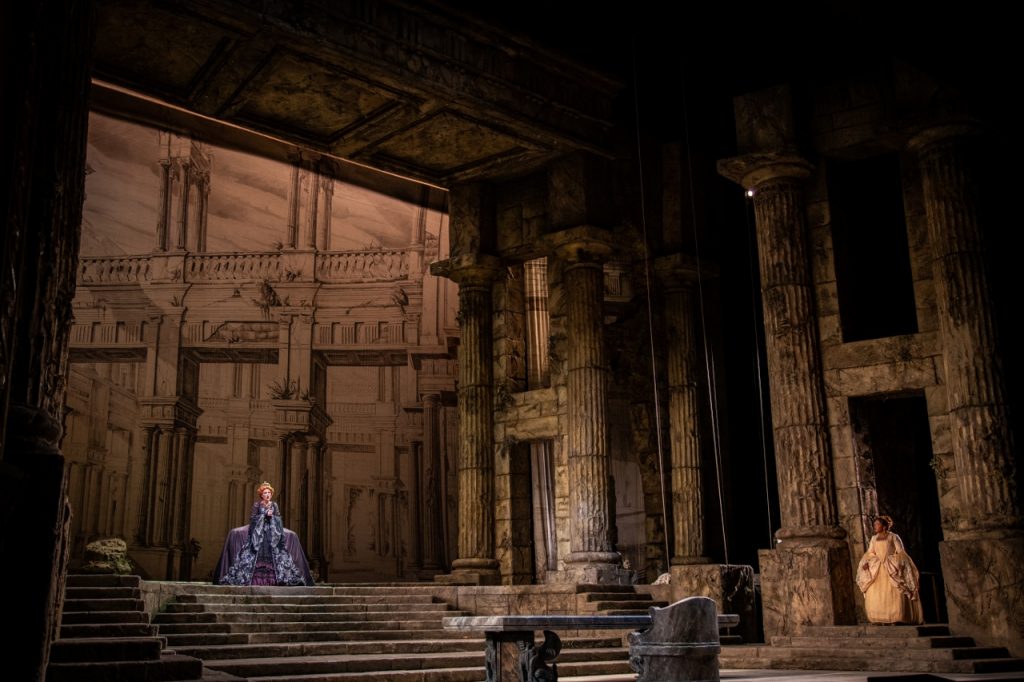
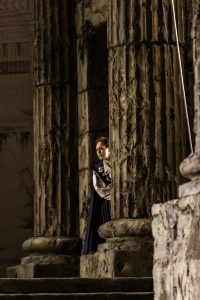

{ 2 comments… read them below or add one }
Great review. My apologies if I sound like I’m nit picking, here is a slight story detail correction, Electra’s mother was named Clytemnestra not Medea. I just though I would point it out.
Not at all, Diana. You are correct, and the change has been made.